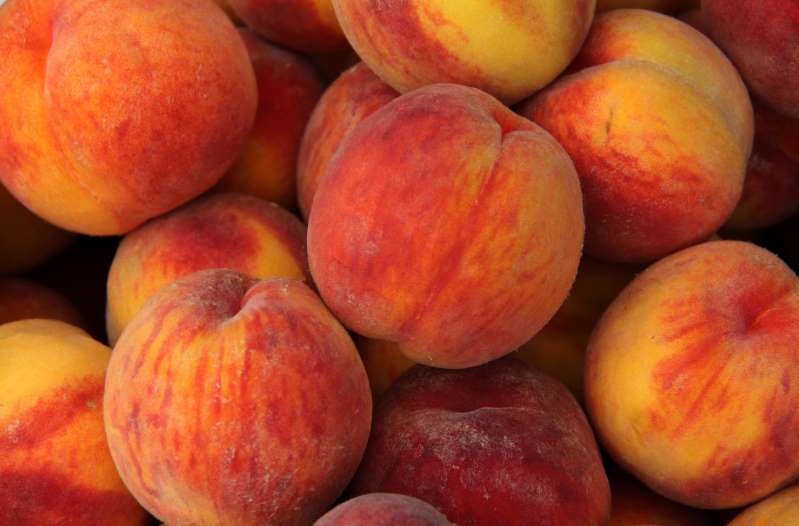The next time you’re holding a fuzzy little peach in your hand, you can thank the hairs that are tickling your fingers for making that sweet fruit possible. Peach fuzz isn’t just a funny trait of the summertime fruit. It’s a defense mechanism, and it’s the reason these fleeting, delicate fruits can even make it from the orchard to your fruit basket at all.
First, peach fuzz protects the fruit from insects and other pests. The tiny little hairs are irritating for some bugs. When every inch of a peach is covered with the fuzz, the creepy crawlers and fliers won’t land on the fruit’s skin. In turn, they can’t lay their eggs or feast on the sweet flesh.
Second, the fuzz also helps protect the fruit’s skin from rot and decay by keeping moisture away. Unlike apples, which have relatively thick skins and can last in storage for up to a year, peaches have thin skins. Microorganisms have an easier time penetrating these skins. Though they won’t stop torrential downpours (or the water from your sink) the fuzz on peaches actually stops and holds dew or mist away from the peach’s skin. Water on the skin can be an inviting spot for bacteria, and that can lead to rotting and decay.
Because they’re so prone to damage and decay, peaches have a brief but glorious lifespan. From picking to rotting, the fruits will last about two weeks.
While the fuzz helps the fruit last longer and be better for you when you buy it, not everyone likes biting into the succulent stone fruit only to get a mouthful of hair. Indeed, fruit producers have been removing some of the peaches during processing to make them more appealing to buyers.
Don’t believe us? Take a look at the peaches at your farmers’ market. Most growers don’t process their fruits in any way, so the fuzz is as it grew. Then take a look at peaches in the supermarket. You’ll notice considerably less hair. This shouldn’t affect the lifespan of your peaches—the fuzz is to help the fruit while it grows, not after—but the additional handling could spell quicker decay as the fruits are quite delicate and temperamental.
If even a bit of fuzz turns you off, you can turn to nectarines instead. These fuzz-less peaches taste just like the classic fruit, but they have a super smooth skin. The skin is so smooth, in fact, that water glides right off the fruit and onto the ground. That’s how this fruit protects itself from water damage, just like the peaches.
For this fruit, you can thank a recessive gene trait. Nectarines are accidentally hairless, but they continue to grow because the super smooth skin protects them from rot and damage. When the fruit makes it through the season, it’s stronger and better for the next year. Unfortunately, nectarines often brown and rot more easily because they’re missing the fuzz, however.
If you pick up a batch of peaches that are little fuzz buckets, you can tame the tresses on those fruits a bit before you sink your teeth in. Gently scrubbing the fruit with a brush can remove the hairs. Sometimes, just washing is all that’s needed. You can always peel the skin, too, if you’re just after the juicy flesh. No harm in cutting away the fuzz entirely.






